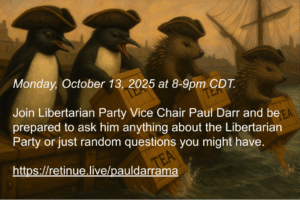 As September 11th arrives, we pause to remember the nearly 3,000 lives lost on that tragic morning in 2001. We also remember the first responders who rushed into danger, the families left behind, and the countless men and women in uniform who have given their lives in the years since. For nearly a quarter century, our nation has been shaped by that day not only in how we grieve, but in how we wage war.
As September 11th arrives, we pause to remember the nearly 3,000 lives lost on that tragic morning in 2001. We also remember the first responders who rushed into danger, the families left behind, and the countless men and women in uniform who have given their lives in the years since. For nearly a quarter century, our nation has been shaped by that day not only in how we grieve, but in how we wage war.
The most profound way we can honor those lost on September 11th is not only by remembering their names, but by ensuring that the wars born out of their tragedy are never repeated. That requires ending the outdated Authorizations for Use of Military Force (AUMFs) that have kept our nation locked in perpetual conflict.
The Legacy of the AUMFs
-
The 2001 AUMF: Passed just days after the attacks, this authorization was intended to target those responsible al-Qaeda and their direct supporters. Yet its sweeping, undefined language has allowed four presidents to justify military operations in more than 20 countries, often far removed from the original perpetrators.
-
The 2002 AUMF: Sold to the American people as a necessary tool to confront Saddam Hussein’s Iraq, it outlived the dictator it targeted. Both Republican and Democratic administrations have used it to justify new military operations long after its original purpose ended.
-
Older AUMFs (1957 & 1991): Though less invoked, these Cold War and Gulf War-era authorizations remain technically active, proof of how reluctant Washington has been to close the door on past wars.
Why Repeal Is Essential
Restoring Constitutional Balance
The Constitution gives Congress, not the president, the sole power to declare war. Leaving these authorizations on the books undermines that safeguard and hands the executive a blank check. Repealing them restores the accountability our founders intended.
Preventing Endless War
The 2001 and 2002 AUMFs have enabled a state of endless, borderless conflict. This is not what the families of 9/11 victims, or the soldiers who gave their lives in Afghanistan, Iraq, and beyond, deserve. Ending these outdated powers is a necessary step toward ensuring future wars are fought only with clear, current, and limited congressional approval.
Honoring the Fallen with Action
Commemorations and ceremonies matter but real honor is found in action. To continue waging open-ended wars under outdated authorizations is to betray the sacrifice of both those who died on September 11th and those who fell in the conflicts that followed. By repealing these AUMFs, we pledge that future generations will not be sent to fight under the shadow of laws written decades ago for purposes long since passed.
Modernizing Security Policy
The world has changed. Our foreign policy should reflect today’s challenges, not yesterday’s battles. Repealing outdated AUMFs does not mean abandoning defense it means replacing stale authorizations with fresh debate, current strategy, and democratic oversight.
A Path Forward
Momentum exists. In recent years, bipartisan coalitions in Congress have supported repealing outdated authorizations, and there is growing recognition that endless war is not sustainable. But half-measures are not enough we must finally close this chapter.
This September 11th, let us remember the fallen not only by mourning them, but by making a solemn promise: never again will we allow a tragedy to become the justification for endless war. Let us honor their memory with peace, accountability, and constitutional fidelity.
We cannot bring back those we lost but we can shape a future where war is no longer the default response, and where their memory inspires us to choose peace over perpetual conflict.
 Monday, October 13, 2025 at 8-9pm CDT.
Monday, October 13, 2025 at 8-9pm CDT.

